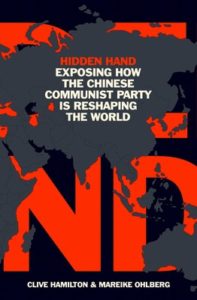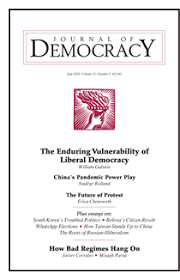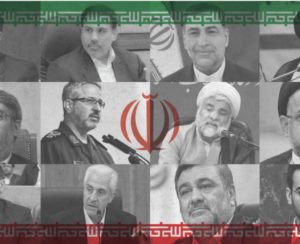THE interaction @Ostrov_A and I had with @Twitter’s representative during the Knesset hearing that exposed the double standards on their platform. #NoSafeSpaceForJewHate #AdoptIHRA
— מיכל קוטלר-וונש – Michal Cotler-Wunsh (@CotlerWunsh) July 30, 2020
I kid you not! At Knesset hearing on Antisemitism, @Twitter rep tells me they flag @realDonaldTrump because it serves ‘public conversation’, but not Iran’s @khamenei_ir call for GENOCIDE, which passes for acceptable ‘commentary on political issues of the day’. cc. @CotlerWunsh pic.twitter.com/AXwjkrvlql
— Arsen Ostrovsky (@Ostrov_A) July 29, 2020
One of Australia’s most prestigious universities has been accused of censorship following its decision to delete social media posts promoting an article critical of Beijing’s crackdown on Hong Kong, The FT reports:
The University of New South Wales also temporarily removed the article headlined “China Needs International Pressure To End Hong Kong Wrongs” from its website at the weekend, following a backlash from Chinese students and state media. It later reversed the decision but the controversy has reignited concerns about academic freedom and foreign influence at Australian universities, which rely heavily on Chinese students for revenues.
 “This latest incident indicates that the Chinese Consul-General in Sydney has more influence in the university [UNSW] than the minister for education. The latter ought to intervene decisively to protect free speech in this country,” said Clive Hamilton, professor of public ethics at Charles Sturt University and author of a book, Hidden Hand, on Chinese influence efforts.
“This latest incident indicates that the Chinese Consul-General in Sydney has more influence in the university [UNSW] than the minister for education. The latter ought to intervene decisively to protect free speech in this country,” said Clive Hamilton, professor of public ethics at Charles Sturt University and author of a book, Hidden Hand, on Chinese influence efforts.
How are social media and digital technology shaping elections? asks analysts Nic Cheeseman, Jonathan Fisher, Idayat Hassan and Jamie Hitchen. This question is more important than ever, yet few studies look at WhatsApp’s impact on the political landscape—even in Africa, where it is the dominant messaging platform, they write for The Journal of Democracy.
Using a case study of Nigeria’s 2019 elections with surveys and analysis from Ghana, Kenya, Malawi, and Sierra Leone, they show how social media are used by parties, candidates and voters, concluding that WhatsApp is a disruptive technology that challenges existing hierarchies in ways that are simultaneously emancipatory and destructive, strengthening and undermining democratic consolidation.
 In the wake of tit for tat consulate closures, Christopher Walker, Vice President for Studies and Analysis at the National Endowment for Democracy and Zachary Hosford, Deputy Director of the Asia Program at the German Marshal Fund, discuss growing tensions between the United States and China and the larger threat that an aggressive Beijing poses to democracies around the world, VOA’s Carol Castiel reports.
In the wake of tit for tat consulate closures, Christopher Walker, Vice President for Studies and Analysis at the National Endowment for Democracy and Zachary Hosford, Deputy Director of the Asia Program at the German Marshal Fund, discuss growing tensions between the United States and China and the larger threat that an aggressive Beijing poses to democracies around the world, VOA’s Carol Castiel reports.
Are social media firms employing double standards when it comes to censoring the online speech of dictators and democratic leaders?
A Twitter official last week said that the tweets in which Iranian Supreme Leader Ayatollah Khamenei calls for Israel’s destruction do not violate the company’s rules against hate speech, and indicated that they are considered mere “foreign policy saber-rattling,” The Times of Israel reports.
“We have an approach toward leaders that says that direct interactions with fellow public figures, comments on political issues of the day, or foreign policy saber-rattling on military-economic issues are generally not in violation of our rules,” Ylwa Pettersson, Twitter’s head policy for the Nordic countries and Israel, told the Knesset’s Committee for Immigration, Absorption and Diaspora Affairs, via video-conference.

Credit: FDD
Blue and White MK Michal Cotler-Wunsh, who called the meeting, interjected: “Calling for genocide is OK, but commenting on political situations is not?” She accused Twitter of a “double standard,” calling for Twitter and other platforms to make a change, The Jerusalem Post adds.
After the meeting, the MK tweeted: “Wow. Twitter just admitted that tweets calling genocide against Jews by Iranian leaders DON’T violate its policy! This is a double standard. This is antisemitism.”
Iran’s leader has repeatedly shared tweets calling Israel a “deadly, cancerous growth” to be “uprooted and destroyed” — all going unchecked by Twitter, The NY Post reports. “The long-lasting virus of Zionism will be uprooted thanks to the determination and faith of the youth,” Khamenei wrote as recently as May.
But on the plus side……
In North Macedonia, @Facebook is partnering with @vistinomer, a @NEDemocracy supported @factchecknet member. 👏https://t.co/w3ZcvABFQ5
— Ivana Cvetkovic Bajrovic (@ivanavicvic) July 30, 2020







